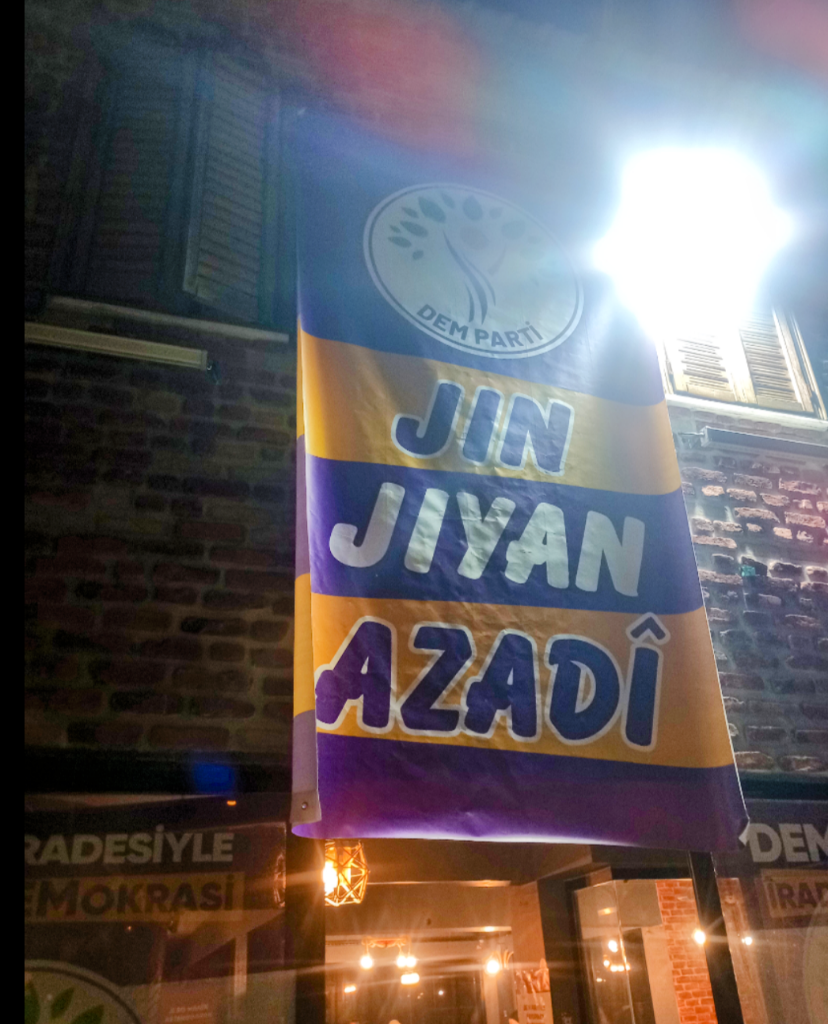A group of internationalist comrades are currently in Bakur (north Kurdistan/southern Turkey) at the invitation of the Kurdish leftist DEM Party. Two delegations—Jin and general—will be attending Newroz celebrations, meeting with representatives of political structures and observing the upcoming municipal elections.
I write this while I sit with my Kurdish hevals drinking çay (‘heval’ means ‘comrade’ and ‘çay’ means ‘tea’ in Kurdish). We are speaking about how much the Kurdish people have gone through: colonization; assimilation; state violence; and earthquakes. Yet despite all this, or more accurately because of the resistance they have had to create, the women I am with are still quick to joy. It annoys the police so much, that no matter what they do to us, still we dance.
I have danced every day I have been here. In the kitchen, in cafés, on the street. It’s more than a dance; it is resisting the assimilation and reclaiming culture.
Last night I shared Iftar (the fast-breaking meal for Muslims observing Ramadan) with around 100 women and children and a huge Jin jiyan azadi
(women, life, freedom
) sign on the door. I sat down with a group of Peace mothers – a group of Kurdish mothers fighting the Turkish state for peace. We talked with the help of Google Translate and my broken Kurdish. Outside I danced again with children who know these dances inside and out. There were multiple police convoys outside the building. Police in a riot gear and vehicles that look like tanks. It seems like every gathering, especially a gathering of women, is met by the intimidating presence of police, watching and letting us know they are there. And yet still we dance.

I went around Sur today with my Kurdish hevals. I have heard about what happened here in 2016, which has been called various names – the clash, the war, the siege. The memories are very present. On one side of the street, one can see buildings destroyed by air strikes, places where many people were martyred and hevals lost their friends. On the other side there is a Calvin Klein store, a Lacoste, other big brands and a very western-looking café called ‘the London café’. The efforts to make a mockery of the trauma people have faced here are extreme. However, the people here cannot and will not forget!
In one of the oldest cafés in Sur, a heval showed me around the building. The kitchen still has bullet holes in the walls. The basements are stockpiled with the supply of water in case people are trapped in the buildings again. The heval pointed to where in the café different people had been killed. She took me to the roof where one can see the scale of the destruction across Sur. Everyone I have spoken to is very open and giving in their sharing of what happened here in 2016.
When I arrived at the café, I asked whether the music playing was Kurdish. She replied: always
.